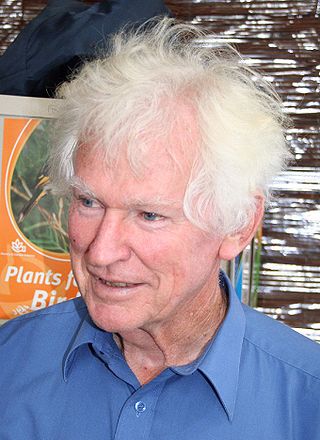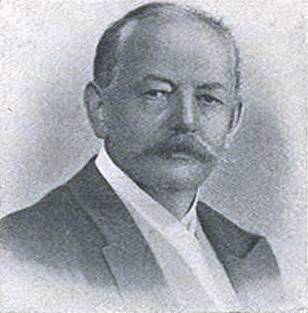Legacy
Several species were named in her honor, including
- Galium pobedimovae Balde, 2012
- Taraxacum pobedimovae Schischk. , 1964 [= Taraxacum hybernum Steven, 1856 ]
- Viola pobedimovae Ye.V. Serg. , 1961 [= Viola nemoralis Kütz. , 1832 ]
Yevgenia Georgievna Pobedimova | |
|---|---|
| Born | 12 November 1898 |
| Died | 6 May 1973 (aged 74) |
| Alma mater | Komarov Botanical Institute, Leningrad |
| Scientific career | |
| Fields | Botany |
Yevgenia Georgievna Pobedimova (1898-1973) was a Russian-Soviet botanist and plant collector noted for describing over 270 species in Russia, Ukraine and North Asia. [1] [2] [3] [4] [5] [6]
She received a Ph.D. in biological sciences from the Komarov Botanical Institute in Leningrad in the late 1930s and although in 1941 she was appointed as a senior research fellow, she was transferred to war work. In 1944 she returned to Leningrad, and participated in the restoration of the Botanical Institute.
During the Second World War she initially worked in a hospital in Leningrad and then in 1942 was evacuated first to Frunze and finally to Kazan.
During her career, she was very active as a plant collector. In 1930-1931 she travelled to Mongolia and then to Central Asia in 1932. In 1946-1947 and 1949 she visited the Caucasus and Crimea and she was in the Mongolian Altai in 1953.
She was involved in production of monographs about several plant families, including Apocynaceae, Thymelaeaceae and Balsaminaceae, as well as working on numerous genera for the Botanical Atlas and the List of Plants of the Herbarium of the Flora of the USSR. In the last years of her life, she published monographs of the genera Honckenya, Cakile, and Cochlearia.
The standard author abbreviation Pobed. is used to indicate this person as the author when citing a botanical name . [7]
Her publications include:
Several species were named in her honor, including

Rolf Singer was a German-born mycologist and one of the most important taxonomists of gilled mushrooms (agarics) in the 20th century.

Alexander Segger George is an Australian botanist. He is the authority on the plant genera Banksia and Dryandra. The "bizarre" Restionaceae genus Alexgeorgea was named in his honour in 1976.

Heinrich Gustav Adolf Engler was a German botanist. He is notable for his work on plant taxonomy and phytogeography, such as Die natürlichen Pflanzenfamilien, edited with Karl A. E. von Prantl.

Nikolai Stepanovich Turczaninow was a Russian botanist and plant collector who first identified several genera, and many species, of plants.

Winifred Mary Curtis was a British-born Australian botanist, author and a pioneer researcher in plant embryology and cytology who played a prominent role in the department of botany at the University of Tasmania (UTAS), where the main plant science laboratory is named in her honour.

Evgenii Vladimirovich Wulff (1885–1941) was a Russian Empire and Soviet biologist, botanist and plant geographer.

Elizabeth Vladimirovna Kozlova née Pushkariova was a Russian ornithologist who worked on the avifauna of the Tibetan plateau.
Agnia Sergeyevna Losina-Losinskaja (1903–1958) was a Soviet botanist. Her family name is also transcribed as Lozina-Lozinscaia, and Lozina-Lozinskaja.

Elian Emily Collins was an English botanist, naturalist and an early collector of plant specimens in Thailand. She discovered several plant species new to science and had numerous species named after her.
Peter Goldblatt is a South African botanist, working principally in the United States.
Barbara Lynette Rye is an Australian botanist born in 1952.
Euphemia Cowan Barnett (1890–1970) was a Scottish botanist known for her research of the flora of Thailand, particularly Fagaceae. The standard author abbreviation Barnett is used to indicate this person as the author when citing a botanical name.

Dr. Daniela Cristina Zappi (1965-) is a Brazilian botanist, plant collector, and research scientist at the herbarium of the Royal Botanic Gardens, Kew noted for studying and describing Neotropical flora, Rubiaceae, and Cactaceae. She has described over 90 species. The standard author abbreviation Zappi is used to indicate this person as the author when citing a botanical name.
Ana Maria Giulietti Harley is a Brazilian biochemist, botanist, and educator known for researching Eriocaulaceae, as well as her work at the University of São Paulo, State University of Feira de Santana, and Vale Institute of Technology. She has described over 70 species and gathered over 300 specimens. She was the 2013 recipient of the José Cuatrecasas Medal for Excellence in Tropical Botany. The standard author abbreviation Giul. is used to indicate this person as the author when citing a botanical name.
Sofya Georgiyevna Tamamshyan (1901–1981) was a Russian-Soviet botanist and plant taxonomist noted for describing 7 genera and more than 50 species, and for authoring over 120 works. The standard author abbreviation Tamamsch. is used to indicate this person as the author when citing a botanical name.

Dr. Tatiana Vladimirovna Egorova (1930–2007) was a Russian botanist and author noted for working at the Saint Petersburg Botanical Garden and for editing the multi-volume Plants of Central Asia series. She described over 170 species, most in the genus Carex. The standard author abbreviation T.V.Egorova is used to indicate this person as the author when citing a botanical name.

Alma Theodora Lee was an Australian botanist and plant taxonomist who worked at the National Herbarium of New South Wales, University of Sydney, and CSIRO. She is notable for raising the standard of systematic botany in Australia, and for her revisions of Swainsona and Typha. She also studied the Fabaceae with colleagues. The standard author abbreviation A.T.Lee is used to indicate this person as the author when citing a botanical name. She described over 40 species. The March 1991 issue of the journal Telopea was dedicated to her memory.
Ekaterina Georgiewna Reineke Czerniakowska (1892–1942) was a Soviet botanist and taxonomist of higher plants.
Anna Kharadze was a Soviet Georgian biologist, systematist, florist, botanist-geographer, collector, a specialist in the flora of Georgia and the Caucasus as a whole.